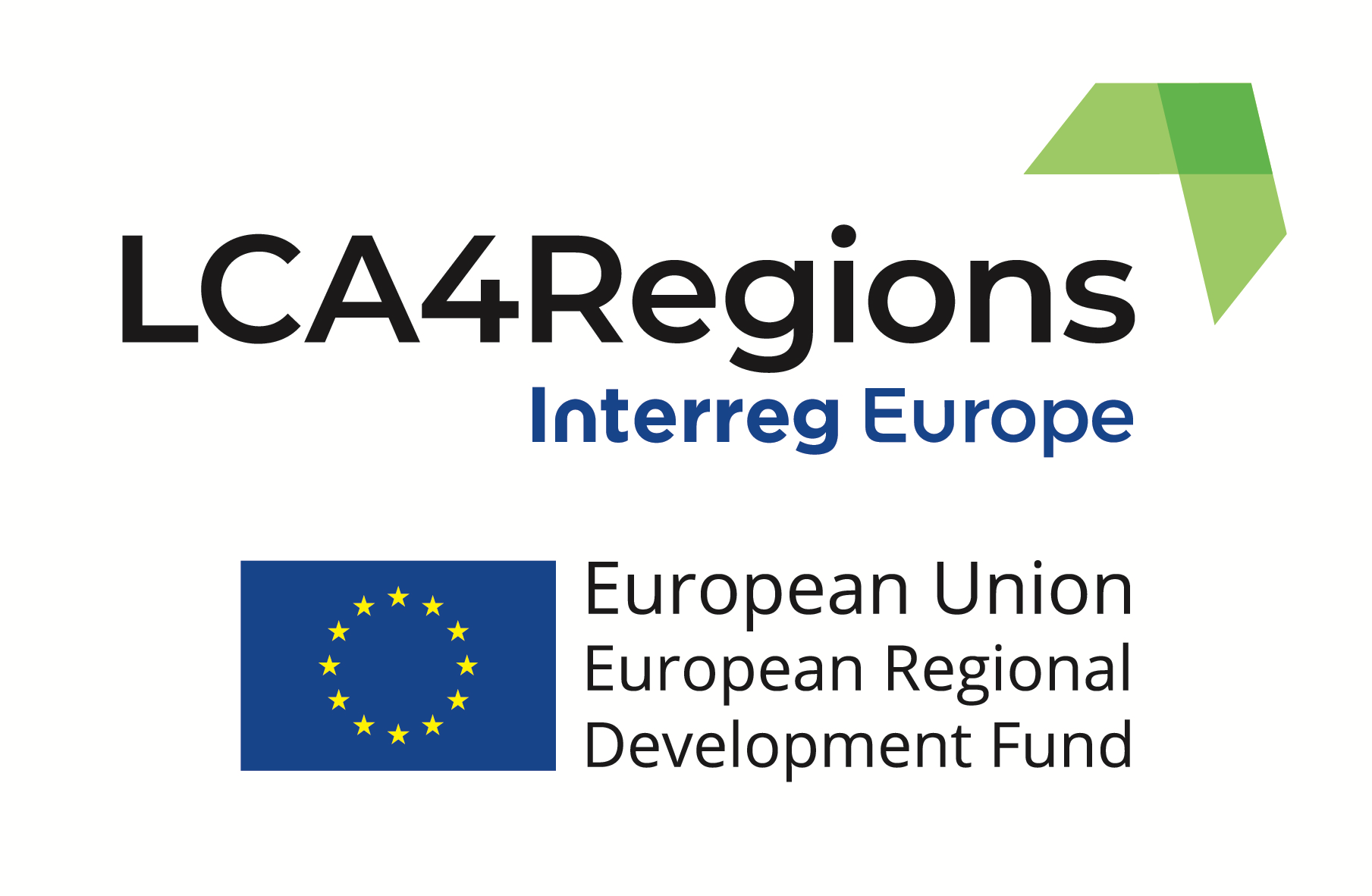News
LCA4Regions
The LCA4Regions project – Improved Environment and Resource Efficiency through use of Life Cycle Instruments for implementation of regional policies of the European Union – endeavored to enhance the effectiveness of environmental policies through the adoption of Life Cycle Assessment (LCA) methodologies. The project aimed to integrate this typical business-related expertise into public policy implementation, in order to boost more efficient use of natural resources.
Project funded under the European Regional Development Fund of the European Union, 2019 - 2023
Highlights
LCA4Regions project partners gathered in Brussels to present their work and take stock of the situation regarding the use of life cycle analysis (LCA) in both policy planning and implementation, taking as an example the sustainable built environment. The discussions concluded that applying LCA to local policy making requires taking simplified steps, one of which is to find a common language between public authorities, research centres, and business sector.
{slider THE PROJECT}
LCA4Regions started from a common challenge faced by participating regions: how to better implement public policies to obtain a greater degree of concordance with stated sustainability objectives, fewer unwanted spill-over effects, and better transparency in the compromises and offsets that needed to be made to move ahead on sustainable economic targets. Project partners saw the application of Life Cycle Methodologies as a solution to improving the implementation of environmental policy instruments on their territories. During four years, project partners worked on expanding the use of this method to governmental authorities when conceiving and implementing public policies related to environmental protection and resource efficiency.
It was expected that the project would contribute to:
-
Improving policy instruments by introducing LCA in all steps of the policy management cycle;
-
Enlarging the circle of end-users that would benefit from making conscious decisions on resource efficiency and investments using LCA.
{slider LIFE CYCLE ASSESSMENT}
LCA is a technique to assess environmental impacts associated with all the stages of a product's life from raw material extraction through materials processing, manufacture, distribution, use, repair and maintenance, and disposal or recycling. This involves a broad examination of the life of the product - a holistic approach.
LCA methodologies are already widely used in the business sector to identify impacts along the life chain of products and materials and to avoid deleterious side effects.
The application of LCA to environmental policies could generate better results in terms of reduction of waste and material flows and pollution that could be considered as the main challenges of the EU regions for the next ERDF programming period.
{slider ACTIVITIES}
During a first phase (lasting 5 semesters), dedicated to exchanges and learning, expertise was shared, good practices were identified, and a policy road map was established with the aim of elaborating Action Plans to improve policy instruments in the 7 represented territories (Kaunas, Navarra, Lombardy, Lodzkie, Pyhäjärvi, Baixo Alentejo intermunicipal community, and Ljubljana).
These activities were intended to clarify the success factors and barriers for the application of life-cycle management approaches for policy implementation. This first phase was based on thematic workshops (Transnational Learning Journeys – TLJ), during which the following areas of interest were analysed:
- Implementation of LCA in environmental and resource efficiency policies
- LCA for resource efficiency
- LCA in waste and material flows
- LCA in public procurements
- Training and capacity building in LCA
- LCA in monitoring and evaluation
During the second phase of the project (2 semesters), the 7 Actions Plans were implemented and evaluated.
{slider ACR+ ROLE}
As advisory partner ACR+ brought to the project its extensive expertise in the subject of circular economy and in activities aimed to increase the capacity of partners and enable the learning of public authorities and stakeholders, with the view of a better implementation of Structural Funds.
ACR+ also provided technical guidance to support the baseline situation analysis and guidance for local Action Plans, coordinated the gathering and benchmarking of good practices, facilitated peer working between partners, and managed the expert committee made of non-local stakeholders.
Last but not least, ACR+ contributed to the development of the Policy Road Map and was in charge of the international dissemination of the project results.
{slider PARTNERS INVOLVED}
LCA4Regions' project leader was the Government of Navarra (ES)* and its project partners were:
|
|
*ACR+ member
{/sliders}












